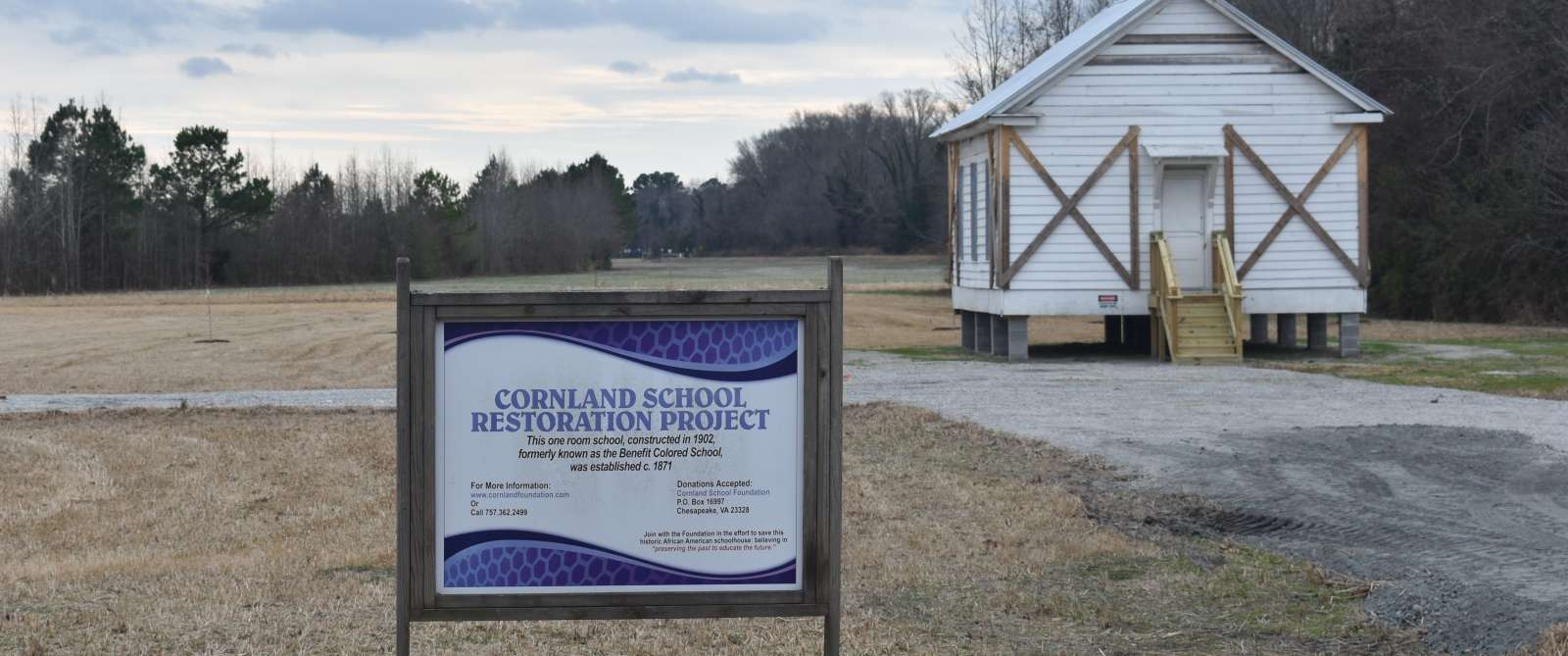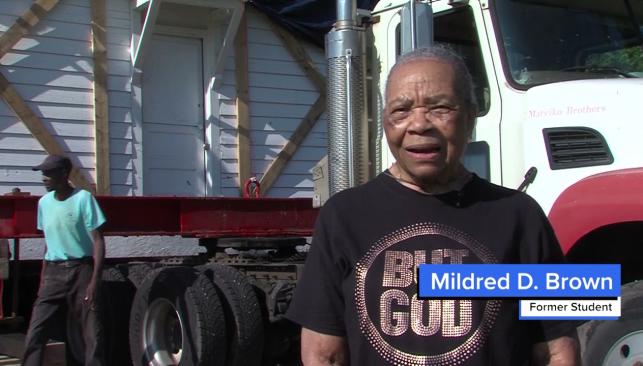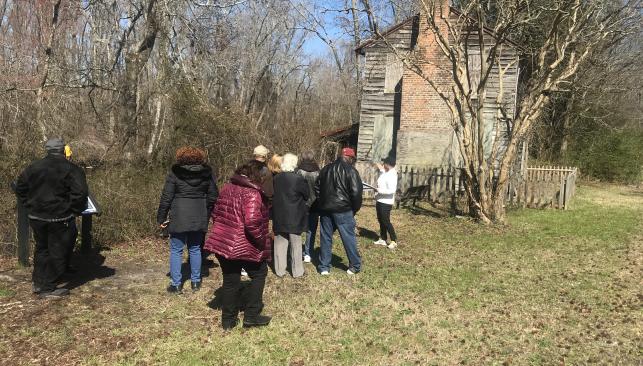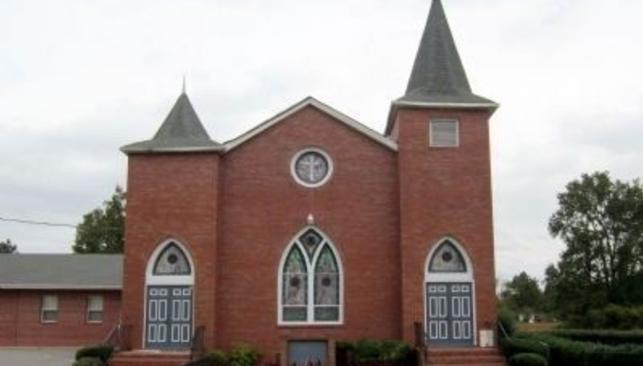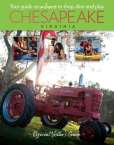Cornland School
Cornland School is historically significant as one of the earliest efforts in Virginia to formally educate African American children not long after the Civil War. It is believed to be the only pre-Rosenwald school still standing in the Tidewater region. Rosenwald schools were the product of an early 20th-century collaboration between Julius Rosenwald and Booker T. Washington. At its conclusion in 1932, the school construction program built nearly 5,000 schools throughout the south. Part of Cornland School’s rich legacy is that it was built with support from the surrounding black community with very little, if any, support from others.
Cornland School was initially established by formerly-enslaved people, not long after emancipation. Historic records indicate that there were three schools for black children in the Pleasant Grove District of Norfolk County (now Chesapeake) as early as 1871. Through the years, Cornland School was built, rebuilt, and sustained operations until the early 1950s.
During and after the Civil War, some of the earliest Virginia schools for black students were in people's homes or churches. At that time, structures constructed to be schools probably looked like Cornland School. They were simple frame buildings, often strategically placed so that the sun came in the east and west windows because there was no electricity. There was also no running water.
The one-room schoolhouse that stands today was built in 1902. Cornland School operated from 1903 until 1952. One teacher was responsible for teaching children of varying ages, for grade one through grade seven, all in one room. There was a potbelly stove in the center of the room. Children helped build a fire for heating and cooking. School alumni shared memories of the teacher cooking a pot of beans, or whatever they had, to serve the students lunch.
Today, the Cornland School Foundation works diligently to preserve and showcase the history and culture of African American early education in Chesapeake, the Hampton Roads region, the state, and the nation. The schoolhouse is on the National Register of Historic Places and the Virginia Landmarks Register.
The Future
On Friday, August 6, 2021, the one-room Cornland School traveled from its original site at 2309 Benefit Road to its new home at 5221 Glencoe Street. The building made this 6.4-mile journey in the name of preservation. Previously, the school suffered from rising waters, unruly plants, and destructive wildlife. Now at Glencoe, Cornland will transform. When the renovation of the school is complete, the building will open to the public as part of a Historic Village. The restored Cornland School will illustrate the legacy of Black education in Hampton Roads from the Reconstruction Era through the dawn of the Civil Rights Era.
Podcast
Parking
There is limited on-street parking at Cornland School. Please note, restoration of Cornland School is currently underway. There is no public access to the building or property at this time.
More on the African American Heritage Trail
Previous Stop
Next Stop
Explore the full list of Chesapeake's African American Heritage Trail locations.

